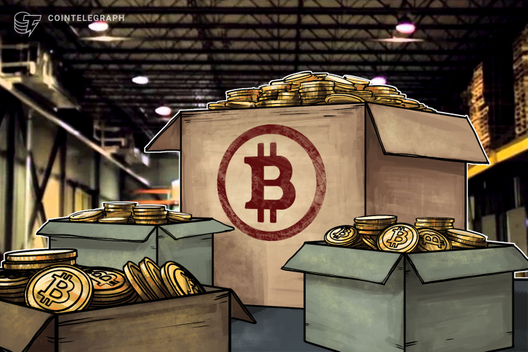DEX Tokens Have Outperformed Centralized Exchange Tokens by 5X
DEX tokens have outperformed their centralized counterparts by 5X this year, with an average increase of 240% according to Messari.
1174 Total views
13 Total shares

Decentralized exchange (DEX) tokens’ year-to-date returns are more than five times that of their centralized counterparts according to the latest DeFi report by cryptocurrency research platform Messari.
DEX tokens have increased on average 241% so far this year while centralized exchange tokens have only increased by 44%.
And that’s not including some recent upswings. The report said that Kyber’s token (KNC) was leading the charge with an increase of more than 420%, however after the report was published, KNC nearly doubled in price and LRC increase by 46%, while the top centralized exchange tokens have reduced on average.

DEX tokens outperform centralized counterparts five fold. Source: Messari
Spot volumes on DEXs have increased from $5 million to $25 million increasing the DEX share of overall trading volume to 0.5% — double the 0.25% coming into the year. While still minimal when compared with centralized exchanges, DEX’s are growing much faster in part due the contribution of DEX aggregators, which spread token swaps across multiple DEXs in order to obtain the lowest prices for traders. Messari researcher Jack Purdy explained:
“A contributing factor is the rising prominence of DEX aggregators such as @1inchExchange and @DEXAG_TokenWire.”
The report said that almost every major DEX has or will soon undergo a major upgrade, increasing scalability and liquidity incentives, driving up interest in their respective tokens.

Most top DEXs have major upgrades planned or completed. Source: Messari
Although the volumes are still dwarfed by the popular centralized exchanges such as Binance and Huobi, Purdy argues that other factors capture the real value of these exchanges:
“Looking at the ‘earnings’ of centralized exchanges, DEXs have a long way to go to emulate this kind of value […] But one advantage DEXs have is they don’t rely on the existence/good faith of a centralized entity […] This could prove to be more scalable both economically and in terms of user trust.”
Token burn value?
Centralized exchanges utilize a token burn procedure, whereby they increase the token price through a supply decrease. This process, however, is completely at the discretion of the organization and token holders rely on a centralized body to balance liquidity with token value increase.
By comparison, DEX tokens have greater potential (and potentially greater risk). Due to the relatively low trading volume on DEXs, continued growth could inflate token holder’s earnings exponentially.









